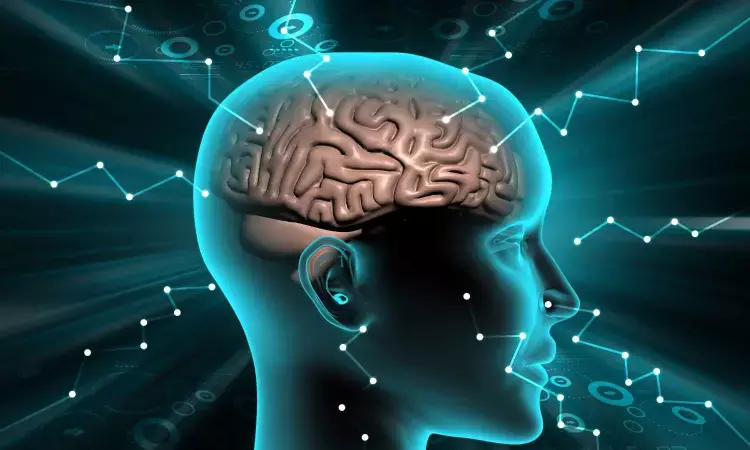- Home
- Medical news & Guidelines
- Anesthesiology
- Cardiology and CTVS
- Critical Care
- Dentistry
- Dermatology
- Diabetes and Endocrinology
- ENT
- Gastroenterology
- Medicine
- Nephrology
- Neurology
- Obstretics-Gynaecology
- Oncology
- Ophthalmology
- Orthopaedics
- Pediatrics-Neonatology
- Psychiatry
- Pulmonology
- Radiology
- Surgery
- Urology
- Laboratory Medicine
- Diet
- Nursing
- Paramedical
- Physiotherapy
- Health news
- Fact Check
- Bone Health Fact Check
- Brain Health Fact Check
- Cancer Related Fact Check
- Child Care Fact Check
- Dental and oral health fact check
- Diabetes and metabolic health fact check
- Diet and Nutrition Fact Check
- Eye and ENT Care Fact Check
- Fitness fact check
- Gut health fact check
- Heart health fact check
- Kidney health fact check
- Medical education fact check
- Men's health fact check
- Respiratory fact check
- Skin and hair care fact check
- Vaccine and Immunization fact check
- Women's health fact check
- AYUSH
- State News
- Andaman and Nicobar Islands
- Andhra Pradesh
- Arunachal Pradesh
- Assam
- Bihar
- Chandigarh
- Chattisgarh
- Dadra and Nagar Haveli
- Daman and Diu
- Delhi
- Goa
- Gujarat
- Haryana
- Himachal Pradesh
- Jammu & Kashmir
- Jharkhand
- Karnataka
- Kerala
- Ladakh
- Lakshadweep
- Madhya Pradesh
- Maharashtra
- Manipur
- Meghalaya
- Mizoram
- Nagaland
- Odisha
- Puducherry
- Punjab
- Rajasthan
- Sikkim
- Tamil Nadu
- Telangana
- Tripura
- Uttar Pradesh
- Uttrakhand
- West Bengal
- Medical Education
- Industry
Study offers insight into biological mechanisms of Long COVID neurological symptoms

USA: A recent study published in Neurology: Neuroimmunology & Neuroinflammation found people with persistent neurological symptoms after SARS-CoV-2 infection to have differences in their immune cell profiles and autonomic dysfunction.
Twelve people with persistent neurological symptoms after SARS-CoV-2 infection were intensely studied at the National Institutes of Health (NIH). The data inform future studies to help explain persistent neurological symptoms in Long COVID. The findings may lead to better diagnoses and new treatments.
People with post-acute sequelae of COVID-19 (PASC), which includes Long COVID, have a wide range of symptoms, including fatigue, shortness of breath, fever, headaches, sleep disturbances, and “brain fog,” or cognitive impairment. Such symptoms can last for months or longer after an initial SARS-CoV-2 infection. Fatigue and “brain fog” are among the most common and debilitating symptoms, and likely stem from nervous system dysfunction.
Researchers used deep phenotyping to closely examine the clinical and biological features of Long COVID in 12 people who had long-lasting, disabling neurological symptoms after COVID-19. Most participants had mild symptoms during their acute infection. At the NIH Clinical Center, participants underwent comprehensive testing, which included a clinical exam, questionnaires, advanced brain imaging, blood and cerebrospinal fluid tests, and autonomic function tests.
The results showed that people with Long COVID had lower CD4+ and CD8+ T cells-immune cells involved in coordinating the immune system’s response to viruses than healthy controls. Researchers also found increases in the numbers of B cells and other types of immune cells, suggesting that immune dysregulation may mediate Long COVID.
Consistent with recent studies, people with Long COVID also had problems with their autonomic nervous system, which controls unconscious body functions such as breathing, heart rate, and blood pressure. Autonomic testing showed abnormalities in the control of vascular tone, heart rate, and blood pressure with a change in posture. More research is needed to determine if these changes are related to fatigue, cognitive difficulties, and other lingering symptoms.
The findings add to growing evidence that widespread immunological and autonomic nervous system changes may contribute to Long COVID. The results may help researchers better characterize the condition and explore possible therapeutic strategies, such as immunotherapy.
Reference:
Mina, Y., et al. Deep Phenotyping of Neurological Post-Acute Sequelae of SARS-CoV2 Infection. Neurology-Neuroimmunology Neuroinflammation. May 5, 2023. DOI: 10.1212/nxi.0000000000200097.
Dr Kamal Kant Kohli-MBBS, DTCD- a chest specialist with more than 30 years of practice and a flair for writing clinical articles, Dr Kamal Kant Kohli joined Medical Dialogues as a Chief Editor of Medical News. Besides writing articles, as an editor, he proofreads and verifies all the medical content published on Medical Dialogues including those coming from journals, studies,medical conferences,guidelines etc. Email: drkohli@medicaldialogues.in. Contact no. 011-43720751


